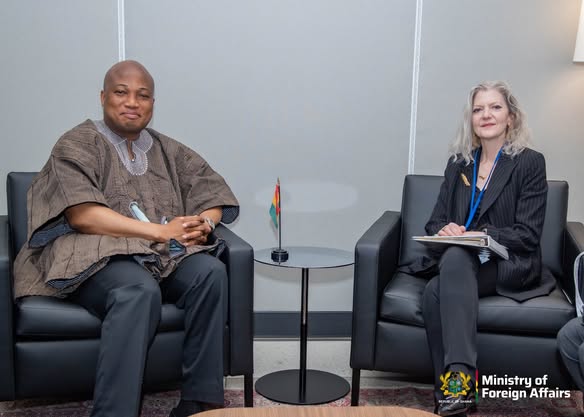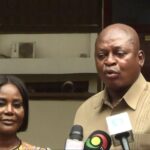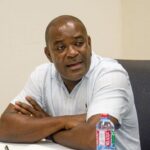Ghanaians are reassured by Foreign Affairs Minister Samuel Okudzeto Ablakwa that there are no unintended consequences to the nation’s security or sovereignty from the recent lifting of US visa restrictions.
His clarification comes after the United States relaxed visa restrictions placed on Ghana in July, marking a significant diplomatic victory for Ghana on Friday, September 26.
Ghanaians can now apply for five-year multiple-entry visas and other improved consular privileges as a result of the ruling.
On Sunday, September 28, 2025, Mr. Ablakwa decried what he called “an avalanche of conspiracy theories and scaremongers” that surfaced following the announcement in a post on X (previously Twitter).
“Since Ghana became the only country under US visa restrictions to secure a reversal from the Trump Administration, an avalanche of conspiracy theories have been making the rounds. May I respectfully ask that you ignore the conspiracy theorists and scaremongers,” he stated.
Ghanaians were given five assurances by the foreign affairs minister:
-
Ghana will not be a dumping ground for US removals.
-
Ghana is not accepting criminals from the US.
-
The limited agreement to accept pre-vetted West African nationals without criminal records aligns with ECOWAS protocols.
-
The deal will not undermine Ghana’s security or stability.
-
Ongoing negotiations with the US go beyond removals, covering tariffs, trade opportunities, and the future of AGOA.
According to Mr. Ablakwa, the Mahama administration’s efforts to engage the US include discussions on the future of AGOA, which is still essential to Ghanaian apparel exports, a push for a reevaluation of the 15% tariff on Ghana, and the investigation of a special bilateral trade agreement.
“The Mahama Administration deeply cares for you — we shall keep working tirelessly to protect our strategic national interest, and we shall ensure our best efforts benefit all Ghanaians,” he emphasised.
Ghana is now the only nation to have successfully negotiated a reversal of US visa bans, according to the Foreign Affairs Ministry, which called the development a diplomatic milestone.






